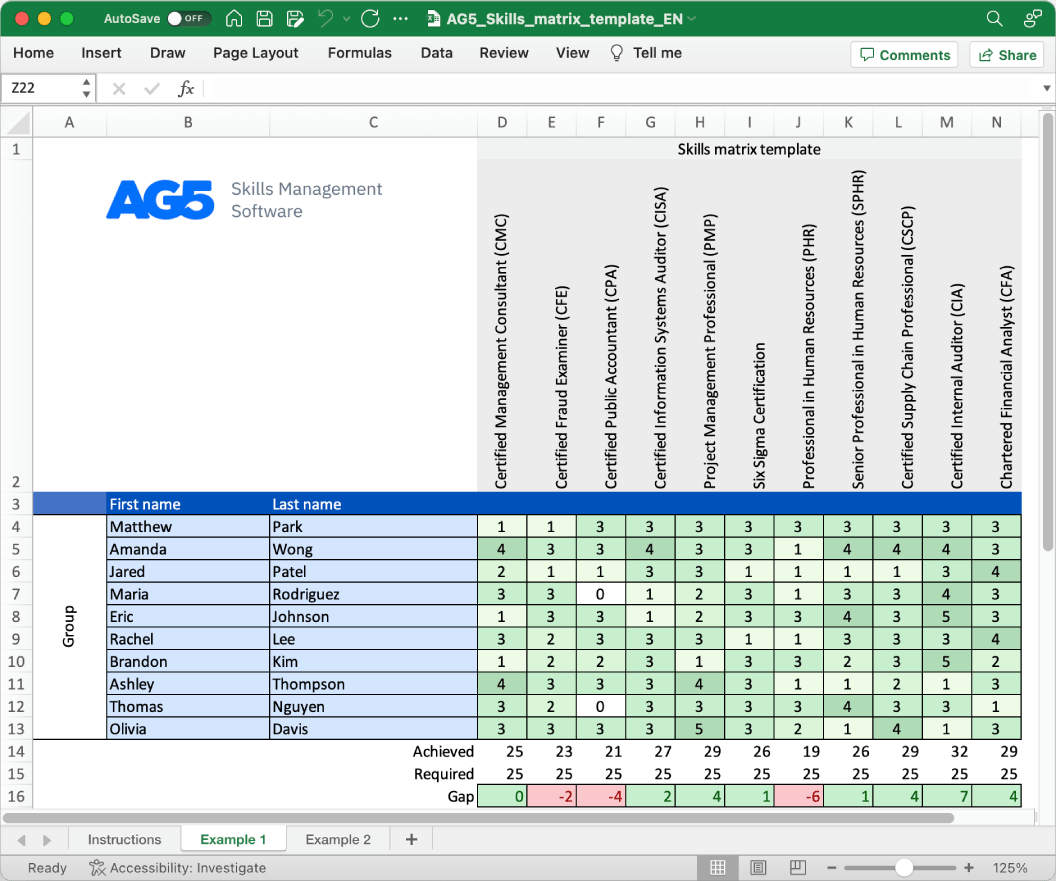Change control board management skills matrix template
A skills matrix template is a tool teams can use to assess their change control board management skills and knowledge
Download your free template here

Overview Copied
With our free change control board management skills matrix template, you will receive a clear overview of the skills that are present in your organization, as well as those that are missing. Using this information, you can develop and implement a plan to ensure that your employees’ skills are up to date, comprehensive, compliant, and ready for the future.
- Certified Change Management Professional (CCMP)
- Certified Change Management Specialist (CCMS)
- Certified Change Management Practitioner (CCMP)
- Certified Change Management Expert (CCME)
- Certified Configuration Manager (CCM)
- ITIL® Intermediate - Release, Control and Validation (RCV)
- Project Management Professional (PMP®)
- Certified ScrumMaster (CSM®)
- Certified Lean Six Sigma Green Belt (CLSSGB)
- Certified Regulatory Affairs Professional (RAPS)
Benefits Copied
Skills management software is vital for assembling adept teams, ensuring swift change evaluations, and informed decision-making, bolstering seamless change control implementation.
Author Copied
Revisions Copied
Tired of managing skills in Excel?
Say goodbye to Excel matrices. Start using AG5’s plug and play skill matrix software.
Recognized by G2 for Excellence in Skills Management

